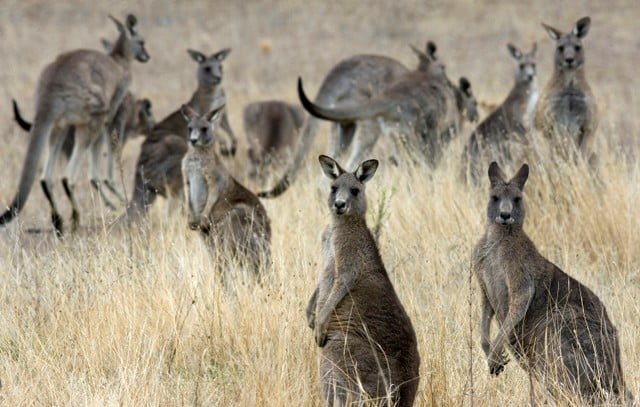The trial for the high-profile kangaroo slaughter case will begin on June 3 at Famagusta district court, it was announced on Friday. Three people face charges under the animal protection and welfare law.
The defendants are two men, aged 54 and 36, and a 55-year-old woman.
The trial was initially scheduled to start on Friday but was postponed after the defendants changed legal representation. Their new lawyer requested additional time to review the case file.
According to police, the 55-year-old woman owns the premises where the animal was housed, and the 54-year-old is her employee and the designated animal caretaker.
The 36-year-old man also faces charges of residing illegally in Cyprus, as his asylum request was rejected in 2022.
The case began on May 7, when police discovered two individuals butchering a kangaroo in a Famagusta parking lot. Officers from Dherynia police station found five knives, an axe, and animal remains at the scene.
One of the suspects fled upon the officers’ arrival, while the 36-year-old remained and was arrested.
During an on-site investigation, police found plastic bags containing dismembered animal parts, along with the axe and knives. The arrested man claimed the animal was a kangaroo he had received from a third party in Paralimni.
A veterinary services officer later confirmed the remains belonged to a dismembered adult kangaroo.
The animal parts were confiscated for further investigation.
Police told Cyprus Mail that dismemberment and/or butchering of any animal in private and not at an approved slaughterhouse is an illegal offence, as public health protocols, as well as animal welfare regulations, are violated by this act.
Consumption of kangaroo meat is not illegal and well-known supermarket chains have stocked the product in the past, which has been a staple source of protein in Australia for thousands of years. Proponents have promoted it as a healthy, low-fat, high-protein dietary choice.
In the EU, Belgium is the largest importer of kangaroo meat. However, efforts to ban its consumption have intensified since 2018 due to allegations of mass killings conducted in cruel and inhumane ways.






Click here to change your cookie preferences